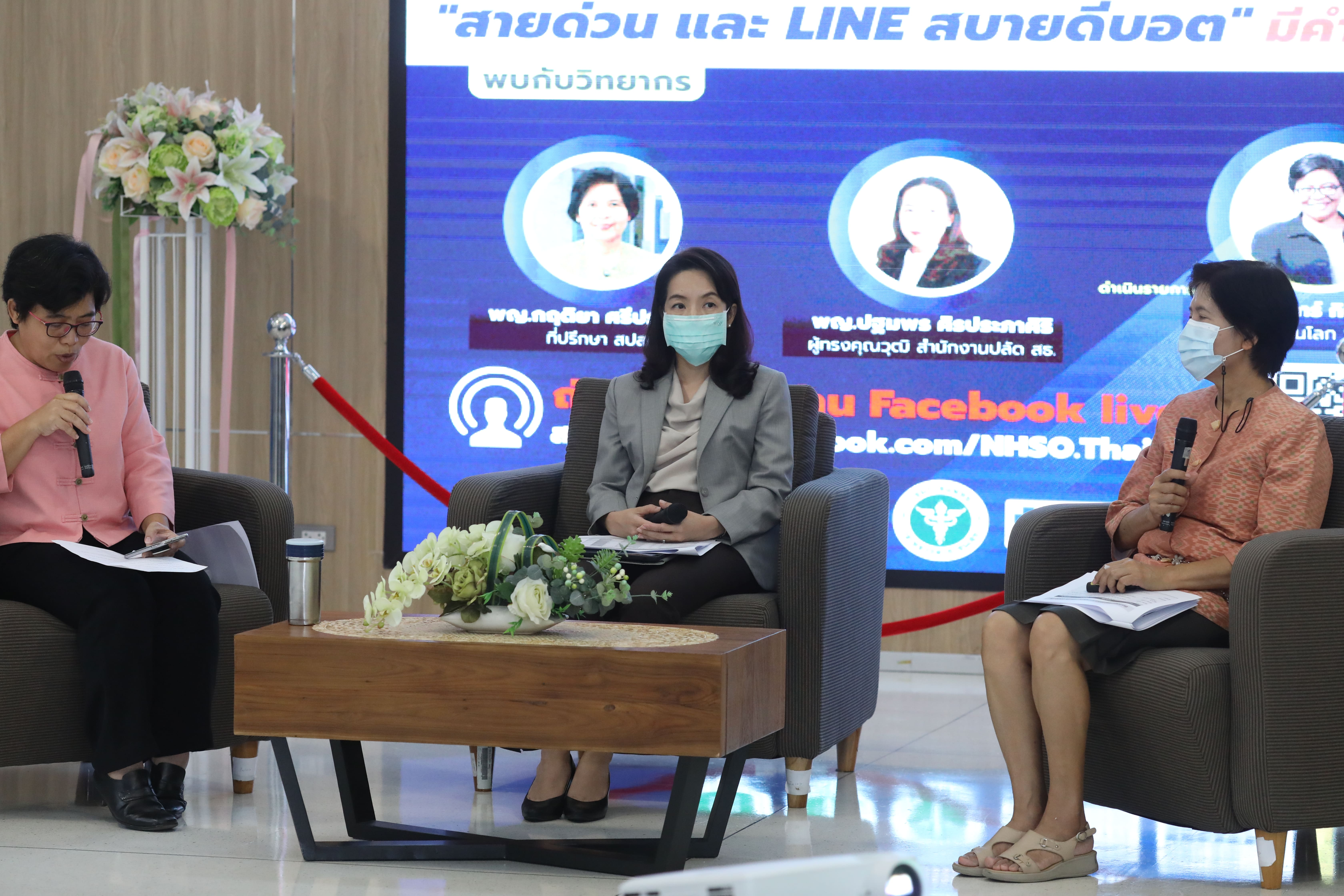
- Home
- DescriptionNews
Thai government ensures COVID-19 essential health services

Thai government ensures COVID-19 essential health services
People at high risk of COVID-19 can request free COVID-19 testing at public and private hospitals across Thailand, and reserve hospital beds if they are tested positive, announced National Health Security Office (NHSO) and Public Health Ministry.
The announcement came during the surge of the coronavirus cases, which spread from an entertainment venue cluster in Bangkok early this month. As of April 16, more than 39,000 confirmed cases are reported in Thailand.

Dr Kritiya Sriprasert, the NHSO advisor, said during the Friday virtual seminar that the Thai government covered health service fees for several items, including laboratory tests, specimen sample collections, medicines, and personal protective equipment.
Free hospital room, meals, and transports for suspected and confirmed cases are also included in the government's health benefits package.
The seminar was held to explain the steps for requesting testing and reserve hospital beds.
Beneficiaries of all healthcare schemes run by Thai government---Universal Coverage Scheme, Social Security Scheme, and Civil Servant Medical Benefits Scheme---can request COVID-19 services at any hospitals if they are at high risk of COVID-19.
A person at high risk includes one having close contact with an infected case---defined as having a conversation within one meter of an infected person for at least five minutes, or being within one meter of an infected person for a total of 15 minutes or more.
In a normal situation, beneficiaries of the government's healthcare schemes are encouraged to visit public hospitals. But as the coronavirus pandemic is an emergency situation, said Dr Kritiya, they can request health services at private hospitals if necessary.
NHSO, along with the other healthcare scheme's operators, will reimburse the service fees with private hospitals under the Universal Coverage for Emergency Patients (UCEP) program, aiming to increase people's access to emergency care and their chances of survival.
If the patients have private health insurance, they shall claim the service cost from the insurance providers first. Any extended cost outside the personal insurance coverage will be reimbursed by Thai government.

Dr Pathomporn Siraprapasiri from Public Health Permanent Secretary Office said during the seminar that the staff of hospitals entered by patients would find beds for patients based on their symptoms.
While waiting for lab test results, patients will be asked to stay under home quarantine.
If their lab tests show negative results, they will be required to stay home and isolate themselves from others because the coronavirus symptoms may not show during their first lab tests.
If patients are tested positive, the hospital staff will seek available beds in their facilities or hospital networks.
Beds are available in three facility options; inpatient beds for those showing symptoms of pneumonia, field hospitals and hospitels (hotels that are adjusted for healthcare purposes) for those aged under 50, having good health and showing few symptoms.
People who use lab test services without going through hospitals, and if the lab facilities are not in the hospital networks, they will need to contact healthcare agencies to request hospital beds.
The contact points include NHSO's 1330 hotline, 1669 emergency hotline, and @Sabaideebot, a Line account created by Public Health Ministry.
Dr Pathomporn urges patients not to contact more than one of these channels, as they are all linked to one database.
It is reported that some people reserve beds with several channels, filling up data space and making information overlap. It consumes time and cost to clean up the data space.

